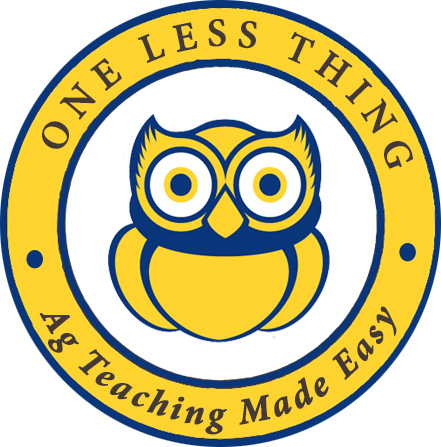Managing Student Behavior: Where's Your High Water Mark?
When I was studying Ag education one of the first topics that my professor regularly discussed managing student personalities. We all allow students to express themselves, but when we've had enough, then we've really had enough. That moment is your high water mark. Whether a new teacher lacking experience or a veteran teacher struggling with apathy (or even burnout), you find that absorbing poor student behavior isn't good for you mental health. Your high water mark allows too much garbage from your students to pool around your feet and slowly rise until it nearly drowns you. Then and only then, do you decide to blow off steam much to the surprise of your students. Quite frankly, you are pretty surprised too when it happens. I suspect there's a good bit of emotion that comes with that release as well. So start recognizing the signs of poor behavior in your students, recognize what sets you off, and learn how to manage stress through delegation.
EARLY SIGNS
Small fires are easier to put out and student behavior is the same way. If you don’t tolerate bullying behavior, then recognize the early signs in the first few days/weeks of school and jump on it hard. It won’t pass, the behavior will not change, and the students are testing to see what they can get away with. Don’t allow the student(s) to build up the inertia (confidence) of getting away with poor behavior before you act. If crude jokes or at least inappropriate jokes are on the menu for one student, then redirect them immediately. Jokes in poor taste mutate into inappropriate jokes and one day they'll just turn flat out obscene. The student slid right by your high water mark and because you didn't recognize the warning signs.
WHAT SETS YOU OFF
Discover what really sets you off. What student behavior do you allow but ultimately sends you through the roof? It may be their behavior isn't that bad, but to foster discussion you allow students to interrupt, talk down, and generally disrupt the conversation but the class is going well so you let it slide. All these behaviors seem minor but these actions are the first steps to creating new habits in your class when their poor behavior isn’t corrected. Another example, you already know that you are a poor organizer and a series of lackluster events/classes/activities really have you frustrated with the behavior of your students. It only takes one student having a bad day to trigger a pile of anger you built up over that last few weeks.
MANAGE STRESS
Are you rushed or overwhelmed with no time to accomplish everything your chapter needs? The stress alone these feelings will suck the life right out of you. Students know you are stressed and they want to test how that stress level impacts your behavior. How can you minimize the stress of running a chapter? One word: delegate. There are tasks that your best students can do for you. It doesn't have to be anything big, even delegating the smallest actions be a huge relief to just not have to do one extra task. All you have to do is manage them. After reading this you say "But it's easier to do it myself than having to check up on them and fix their mistakes." I agree completely, but you have to learn how to delegate better and students have to learn how to listen, follow instructions, pay attention to the task, and review their results based on their instructions they were given. This is a life lesson for you and the student. You'll get better at delegating and they will get better at completing individual tasks like they will do in their first job. Allow yourself to grow and develop this skill and you will find that you've created another method to impact students.
You have to push that high water mark from just below your chin, down somewhere between your knees and ankles. This requires you to recognize the type of garbage you often internalize instead of dealing with. I firmly agree that you need to pick your battles with students, some nonsense you just let go but the behavior you really disapprove of must be stomped out early. So keep an eye out for what frustrates you and start working on methods to limit that frustration before it boils over into your life. Put out those fires quick and remove those triggers from your everyday life. When you take a few moments to make this part of your life, then you will become a happier person and certainly less stressed than you had been. Good luck!



